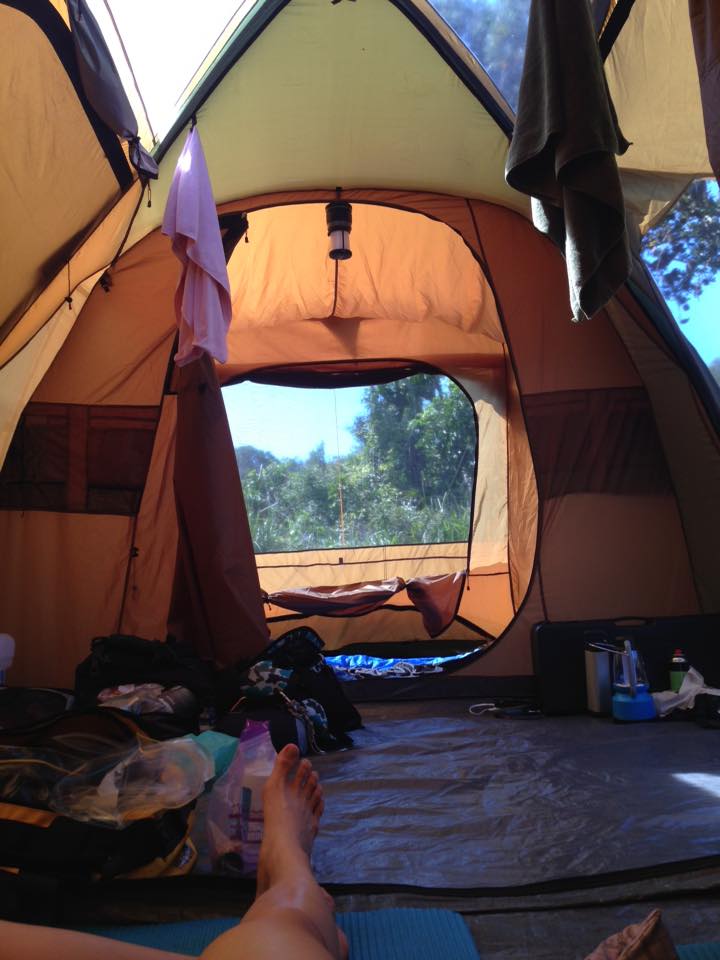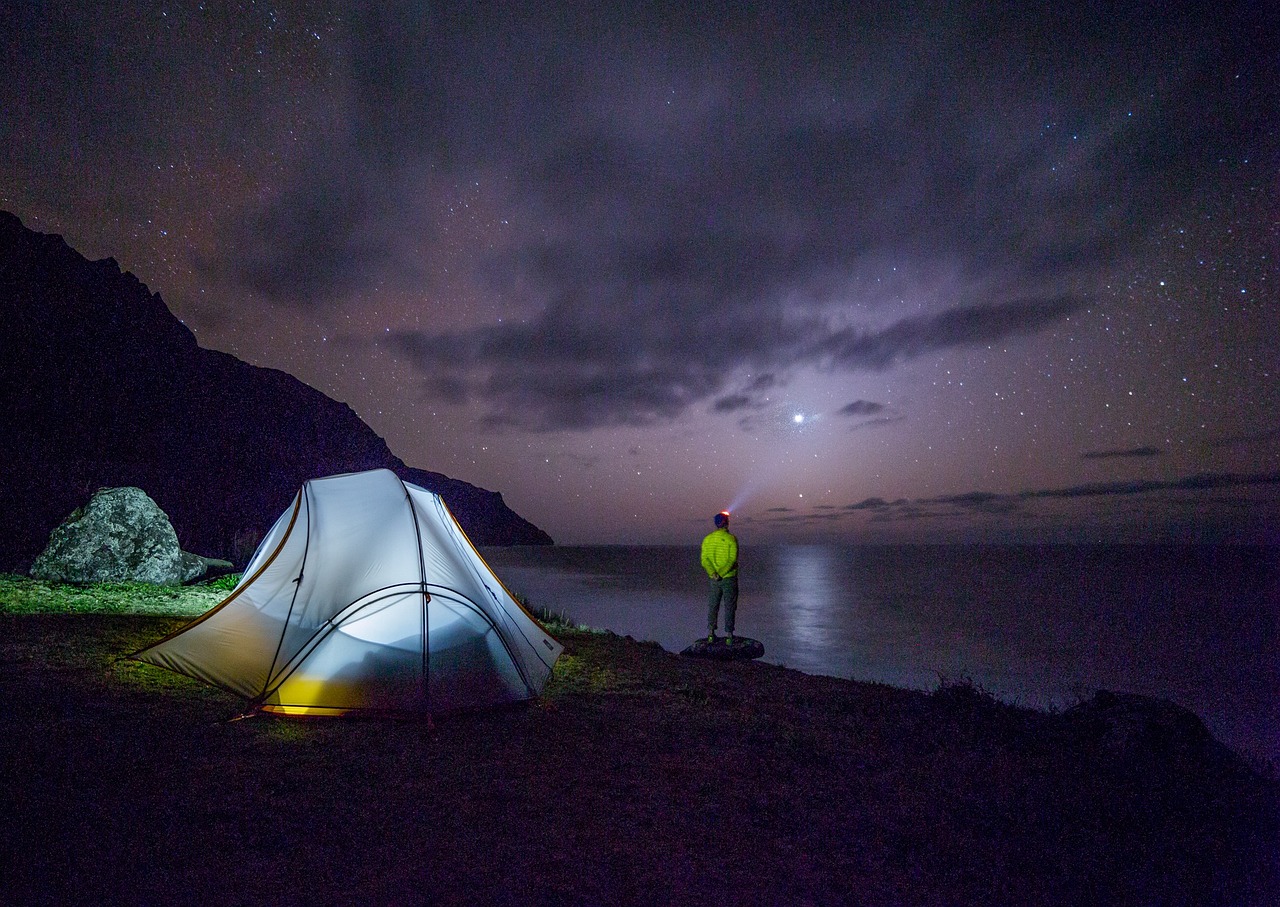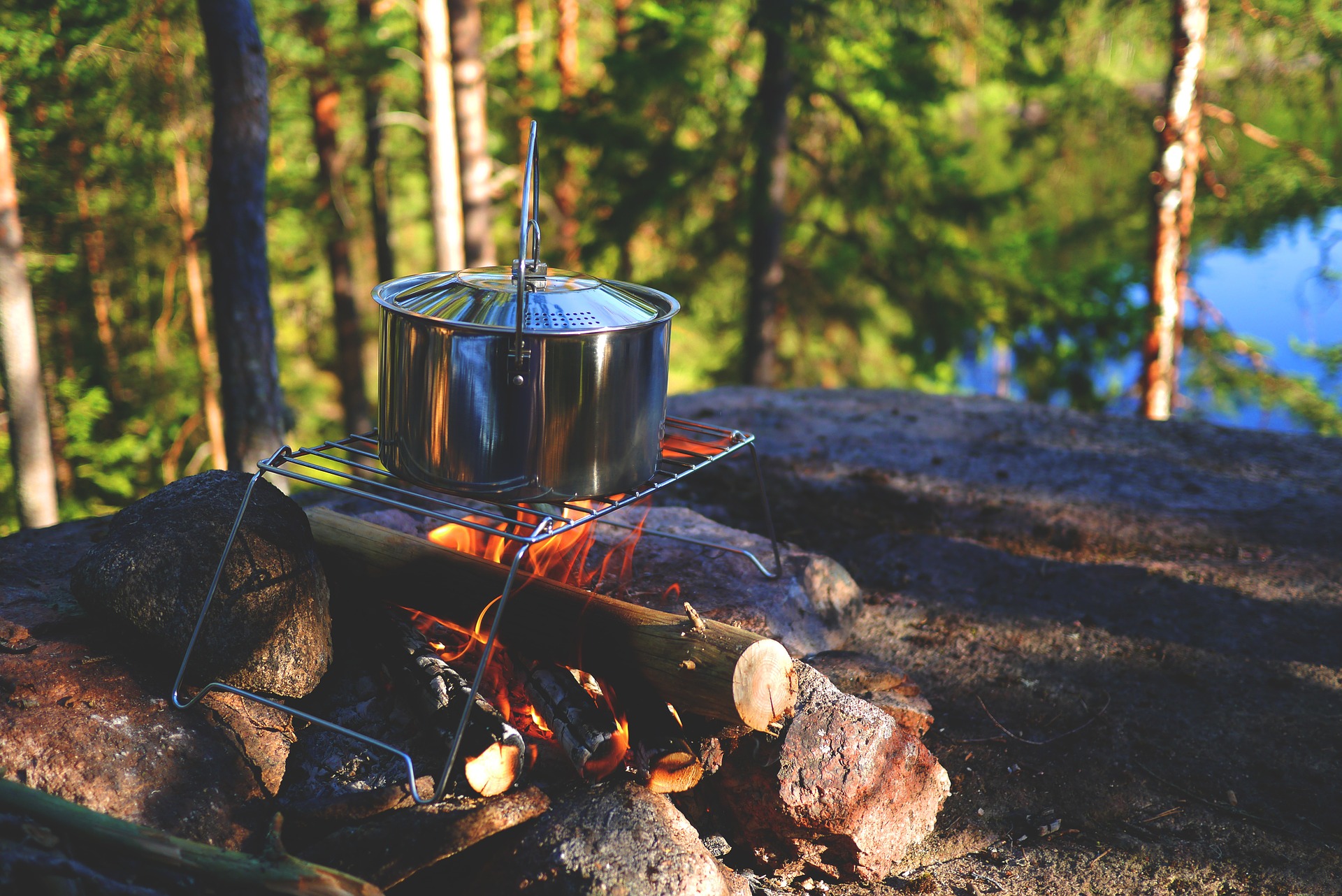Can you cut 1 Tonne of carbon pollution out of your life?
Take the challengeMaking your camping trip earth-friendly takes a bit of planning, but is definitely doable!
Ah, spring! The time when flowers start blooming, when an abundance of fresh produce becomes available to us, and when we come out of our winter hibernation to get outdoors again. Is there anything better than camping with some friends in the wilderness, surrounded by nature?
Last weekend, I went camping with a bunch of friends on Central Coast. We were determined to lessen the impact of our trip on the planet (as best as we could on poor uni student budgets). Here's what I learnt…

Consider how you are getting to your camping site
Before you even reach your camping site, you can already start reducing your carbon footprint through carpooling. We packed really light and all 5 of us managed to travel in one car. As a rough gauge, every car annually emits its own weight in CO2 into the atmosphere. By leaving that one (or two) extra cars behind, that amount of carbon saved will be significant. Plus, you get extra time to chat with your camping buddies – what's not to love about carpooling?
In addition, you can also look for campsites that are not too far away from where you live to reduce the distance you have to drive to get there. More often than not, there are fantastic camping spots (albeit not as well-known) just 1 to 2 hours away. It takes a bit more Internet-sourcing, but you're rewarded with relatively empty spots to explore! National Park websites are a good place to start.
Rent or borrow gear
Unless you're an avid camper, there is really no need to buy brand-new camping gear. Ask around and borrow gear such as tents and sleeping bags from friends. It's a great way to reuse items, especially if they don't use it often either.
Alternatively, renting second-hand gear is an option too and most places allow you to pick up the equipment as you're on the way to your campsite. If you're looking to buy new gear, remember that not all camping equipment is created equal, so look for sustainable equipment that has a low impact on the environment.

A torch or some kind of lantern is an essential after the sun goes down, so solar lighting could be your best friend here. Simply leave your lantern out during the day to soak up the sun's rays and it will be ready to use at night for games, actually seeing what you're eating and finding your way to the toilet! Lanterns and torches that rely on rechargeable batteries are also useful or consider a salt lamp.
Cooking
This is where it gets tricky. Single-use travel-sized items are more convenient but also result in more waste.
Disposable utensils often come in the form of single-use plastics, which, after one use, just end up sitting in landfills. These days, there are biodegradable and compostable utensils that are slightly better than their plastic counterparts, but nothing beats an inexpensive reusable set of cutlery that you can bring on future camping trips or use them in the home or office when you're done with camping!

To go one step further, you can even skip plates and just bring a small pot or reusable metal mess tins (which was what we opted for) to cook with and eat from. Or think foldaway lightweight plates made from titanium or those old plastic plates you have sitting in the back of your cabinet. Skip the gas stoves too and opt for a honey stove, which is a little foldaway camp stove that uses wood for fuel and is small enough to fit into a backpack.
Sort rubbish from recycling (and bring both home)
This is where you take nothing but pictures and leave nothing but footprints, literally!
Most campsites have a waste and recycling drop off point nearby, if not a short drive away. So, remember to sort your rubbish from recycling and bring both to the drop off point as you're on your way out from the campsite or simply carry them back home with you. Ideally, you would like to have as little rubbish as possible and that can be achieved if you avoid heaps of uneaten food by not overestimating the amount of food you bring on the trip. Buying larger quantities means less packaging overall. Small acts like bringing bag clips for large bags of opened chips instead of buying small individual packs can go a long way with reducing waste.
Water
Water becomes the ultimate scarce resource when you go camping - you start to realise how much you rely on water and the shocking quantities that we're accustomed to using every day.
If you have a solar shower, make sure to take really quick showers and turn it off when lathering your body or hair. We didn't have the budget for a shower so we opted for powder baths – that's where you dust your entire body with baby powder or corn starch. Works like a charm to help you feel fresh if showering is not an option. Personally, I like to rub some baby powder into the roots of my hair and it works just like a dry shampoo. For drinking water, get reusable water tanks that hold 10 or more litres of water and use it sparingly instead of getting individual disposable plastic bottles.
Ultimately, the goal is to leave the campsite exactly the way you found it, with no trace that you were there at all.
[Pics: PicJumbo]
Do you have any other trips that you would like to share with us? Drop us a comment below!

